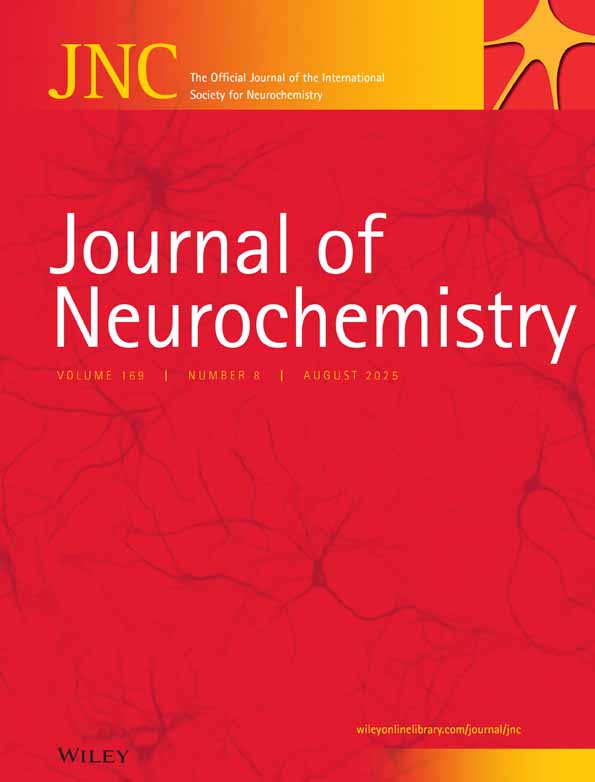POST MORTEM STABILITY AND STORAGE IN THE COLD OF BRAIN ENZYMES
Abstract—
Tyrosine hydroxylase (TH), glutamate-decarboxylase (GAD) and choline acetyltransferase (CAT) were estimated in the striatum of rat brains kept at 20°C or 4°C for various periods of time up to 48 h after death. At 20°C TH and GAD activities decreased up to 4&50% of controls after 48 h; CAT activity was not affected. Maintenance of dead animals at 4°C completely (GAD and CAT) or partially (TH) prevented the decrease in enzyme activities. In a second series of experiments, TH, G A D and CAT activities were measured in striata (tissue or homogenate) stored immediately after death at different temperatures (4°C; -35°C; -70°C) for various time intervals up to 3 months. Storage of striata at 4°C induced a rapid decrease of all enzyme activities with time (GAD > CAT > TH). TH, GAD and CAT activities in striata kept at -35°C or -70°C were fairly stable. However, CAT activity was slightly decreased when the dissected striata were not homogenized; GAD activity was substantially reduced after 3 months at -35°C. Stability of TH, GAD and CAT activities were confirmed in homogenates of human caudate nucleus stored at -70°C for 1 month.
If human enzymes behave similarly to the rat enzymes the following conclusions should be drawn: (1) brains should be obtained at autopsy within 8 h after death; (2) placement of dead bodies in the refrigerator should be done as soon as possible; (3) dissected brain structures (preferably as homogenates) should be stored at -70°C.
Abbreviations used:
-
- TH
-
- Tyrosine hydroxylase (EC 1.14.16.2)
-
- GAD. Glutamic-acid decarboxylase (EC 4.1.1.15): CAT
-
- Choline acetyltransferase (EC 2.3.1.6)




